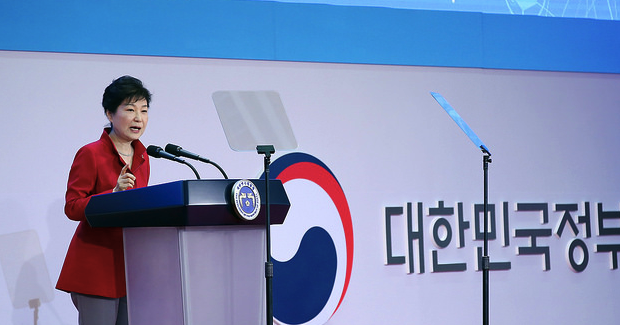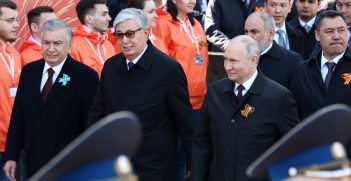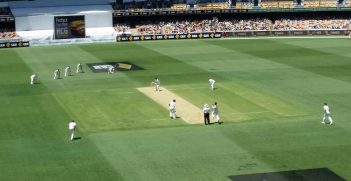South Korean Scandal Prompts Possible Resignation

On Tuesday, South Korean President Park Geun-hye surprised many when she declared she was willing to resign in the face of ongoing scandal and a growing political crisis. Two million people demonstrated against the president at the weekend, and her approval ratings have dropped to single digits. But what are the allegations? And what will happen next?
Last Saturday, demonstrators gathered in South Korea’s major cities and called for President Park Geun-hye’s immediate resignation. At the centre of the ongoing scandal is her friend, Choi Soon-sil, a daughter from the fifth wife of late religious cult leader Choi Tae-min. Choi Senior is known for deliberately approaching Park and her father, the late military dictator and former president, Park Chung-hee, after the assassination of the First Lady in 1974. He convinced them both that he was a medium with very special spiritual powers. Subsequently, Choi Tae-min and Park became so close that they have been referred to as a ‘spiritual couple’, and Choi Soon-sil became a friend and confidant.
How did the scandal came about?
A South Korean news broadcasting company acquired a tablet computer allegedly belonging to Choi Soon-sil. Choi then denied that the tablet belonged to her during an investigation. However, a search found the tablet contained speeches given by the president and edited by Choi. Moreover, it contained classified government documents and selfies of Choi. These revelations revealed the closeness of Choi’s relationship with the president, but they were just the tip of the iceberg—numerous allegations have been made which suggest that her influence went deep.
The allegations so far
First, it was Choi’s daughter, Chung Yoo-ra, under scrutiny. She is currently a student at the nation’s prestigious Ewha Women’s University and gained entry under a special athlete category for horse riding, which is a highly elite sport in Korea. Chung allegedly received favourable treatment from her high school teachers, university professors and sports authorities despite not being a qualified candidate for a position. Choi’s motherly intervention was evident in every step of her daughter’s schooling and sports competition. Ewha students were furious about this allegation and demanded the university investigate Chung’s entry and that the university president resign.
This may sound a bit extreme. However, those who know how fanatically competitive university entrance is in South Korea would understand why students and their parents are so angry about this special treatment for the daughter of the president’s friend. Just to give you one example of how seriously Koreans take university entrance exams, on the exam day all road traffic stops during the morning when students are on their way to exam venues and aeroplanes cannot fly while the listening tests are being conducted.
Second, Choi set up a foundation to receive donations from businesses, exploiting her status and proximity to the president. The exact figures and the extent of President Park’s involvement are still being investigated. The current figure is tens of millions of dollars. Park’s political aid, Ahn Jong-bom, recounted to the prosecution that the president had frequently ordered him to collect funds from conglomerates.
Third, Choi’s allies have allegedly meddled in the appointment of senior figures in government and universities. Cha Eun-taek, TV commercial director and a key figure in the Choi scandal, is known to have orchestrated almost all the cultural content of government projects from dance and sports, to the arts, and has been given the nickname “crown prince” of culture. His professor and uncle were appointed as culture minister and senior advisor for culture and education, respectively.
Fourth, her reach exceeded everyone’s imagination. The inner circle who knew about her existence assumed that Choi was only looking after Park’s diet, skin treatment, cosmetics, clothes, handbags and all the other ‘lady stuff’. Choi has also been accused of having purchased viagra for the president’s “altitude sickness“. Korean male politicians have been particularly angry because Choi has had greater access to the president than they did and, more importantly, that a woman went beyond traditional women’s roles and intervened in the men’s world of political affairs. Choi seems to have made suggestions on important political and diplomatic decisions, even though she never held any official title in politics or government.
Fifth, the Blue House (the presidential palace) never gave satisfactory answers for Park’s disappearance for seven hours after the tragic sinking of the Sewol ferry, rexulting in the death of many high school students. It is alleged that the president was having anti-wrinkle treatment for her skin during these critical hours. Whether she was monitoring the situation and giving orders to rescue people is still not clear. At the centre of these allegations is former chief of staff, Kim Ki-chun, and whether he was duly reporting the situation to the president. Park appeared publicly seven hours after the incident, and asked why it was so difficult to rescue students who all wore life jackets. By then, 304 passengers were all dead.
What’s going to happen?
Two million protesters of all ages called for President Park to step down on Saturday. Her approval rate has plunged to 4 per cent from 5 per cent two weeks ago. Park has clearly lost public trust in her presidency.
Frustrated citizens looking for alternative political power are disappointed by the fragmented ruling and opposition parties. The ruling party is divided into pro-Park and anti-Park factions, fighting against each other and shirking any responsibility for the scandals. The opposition parties also can’t consolidate their power in one strong unifying candidate. Moon Jae-in, who lost against Park in the last presidential election, is the most likely candidate. But the progressive democratic forces are divided into pro-Moon and anti-Moon factions. There is currently no realistic alternative to Park’s failing presidency.
The best scenario is to appoint an interim prime minister, if all parties can agree upon a candidate, to run the country until the next election in December 2017. Park would then have to step back and play a ceremonial role.
There has been a fair bit of misogyny in the media since the breaking of the Choi Scandal. This has a huge impact on women in politics in general. Elderly Park supporters in Seoul said to me, “no more female presidents for Korea” and “women can’t run a country”.
President Park may still want to survive this political crisis. She may do something tough and dangerous, invoking national security. She doesn’t have to look too far. There is a ready-made enemy at hand in the form of North Korea. The risk is that once cornered in shame, Park may lash out as a last resort for political survival and to protect her parents’ legacy.
Dr Jiyoung Song is the director of migration and border policy at the Lowy Institute for International Policy. She is also a global ethics fellow at the Carnegie Council for Ethics in International Affairs.
This article is published under a Creative Commons Licence and may be republished with attribution.





